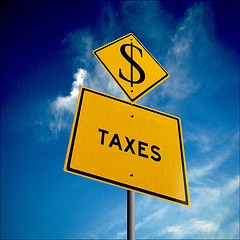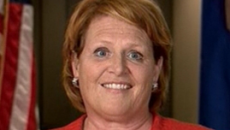Dorso Column: Balancing Property Tax Relief With Income Tax Relief

We now have two major tax initiatives in front of the legislature.
SB2037 is the property tax relief bill proposed by the Governor which perpetuates the state’s buy-downs of local property taxes which have had very little effect on keeping property taxes down. Of course, supporters of the bill mightargue that without the general fund money flowing to political sub division’s property taxes would have been much higher.
Then there is HB1182 introduced by Rep. Scott Louser which suspends the North Dakota state income tax for a two year period. This is the proposal which I think has the most merit. I believe it is fairer because it relieves a tax burden on all of the citizens of the state, not just those who own real estate.
Being a realist, though, I think the legislature can handle this in such a way as to minimize any radical changes that might cause issues to arise concerning budgets at the state and local level. Purists will argue that I am not standing firm but I assure you the goal is to eliminate the income tax.
If SB2037 were to fail it would immediately cause a serious ripple effect in the political subdivisions who share in the largess from the state treasury. To minimize that, which actually means mitigating large property tax increases for a year or two, the legislature should probably leave in place the mechanism and dispersal of the funds for the first year of the biennium. The second year of the biennium could be a total discontinuance of the program or a largely scaled back version giving the political subs time to absorb the new policy.
The issue then becomes, how do you implement HB 1182? I think the best way to do that is to make its effective date January 1st of 2014. The income tax would be in effect for all of 2013. Income tax withholding would continue for most of 2013 no matter what the legislature does as the date of HB1182’s implementation wouldn’t be until mid year at best. This would cause the Tax Commissioner a lot of work as they not only would have the issues dealing with employer collection of the tax but also the refund to all income tax payers.
Maybe you could call the suspension a Christmas gift from the 63rd Legislature?
The other issue which will be raised is the possibility of revenue shortfall in the general fund during the coming biennium. That is a real concern that must be addressed. As we have seen there are a number of fiscal issues facing the state not the least of which is the chance of a drop in oil and gas production. To minimize the chance there would have to a special session, and a trigger mechanism should be devised.
As an example if the ending fund balance for the coming biennium falls below the projected number the income tax would not be suspended January 1st 2014. Assuming the 2014 suspension takes place the trigger would kick the tax back in January 1st of 2015 if the projections were not good for the rest of the biennium. Given the timing of this, the 64th legislative session would have a clearer picture of the state’s finances and could affirm the suspension for subsequent years using the same trigger for re-institution of the tax if necessary or do away with it entirely.
I see it as a total win for the citizens of North Dakota. Everyone shares in a tax break yet the finances of the state are not put in jeopardy. The one issue the trigger does leave on the table is what should the ending fund balance be at the end of a biennium? Conservatives will generally argue for a higher ending fund balance. If they adopt the suspension approach, they may pick a lower number so as to keep the tax suspension in place.
How and when the house deals with HB1137 while the senate deals with SB2037 will give us a clue as to how legislative leaders will proceed with these very important policy decisions. The voters should be watching for how the bills are scheduled for hearing, what amendments are proposed and who votes for or against the proposed amendments and the final versions as they are recommended to the floor.
The strategy the leaders use at these times can make all the difference in the outcome. Of course nothing is final until they adjourn “sine die”.







